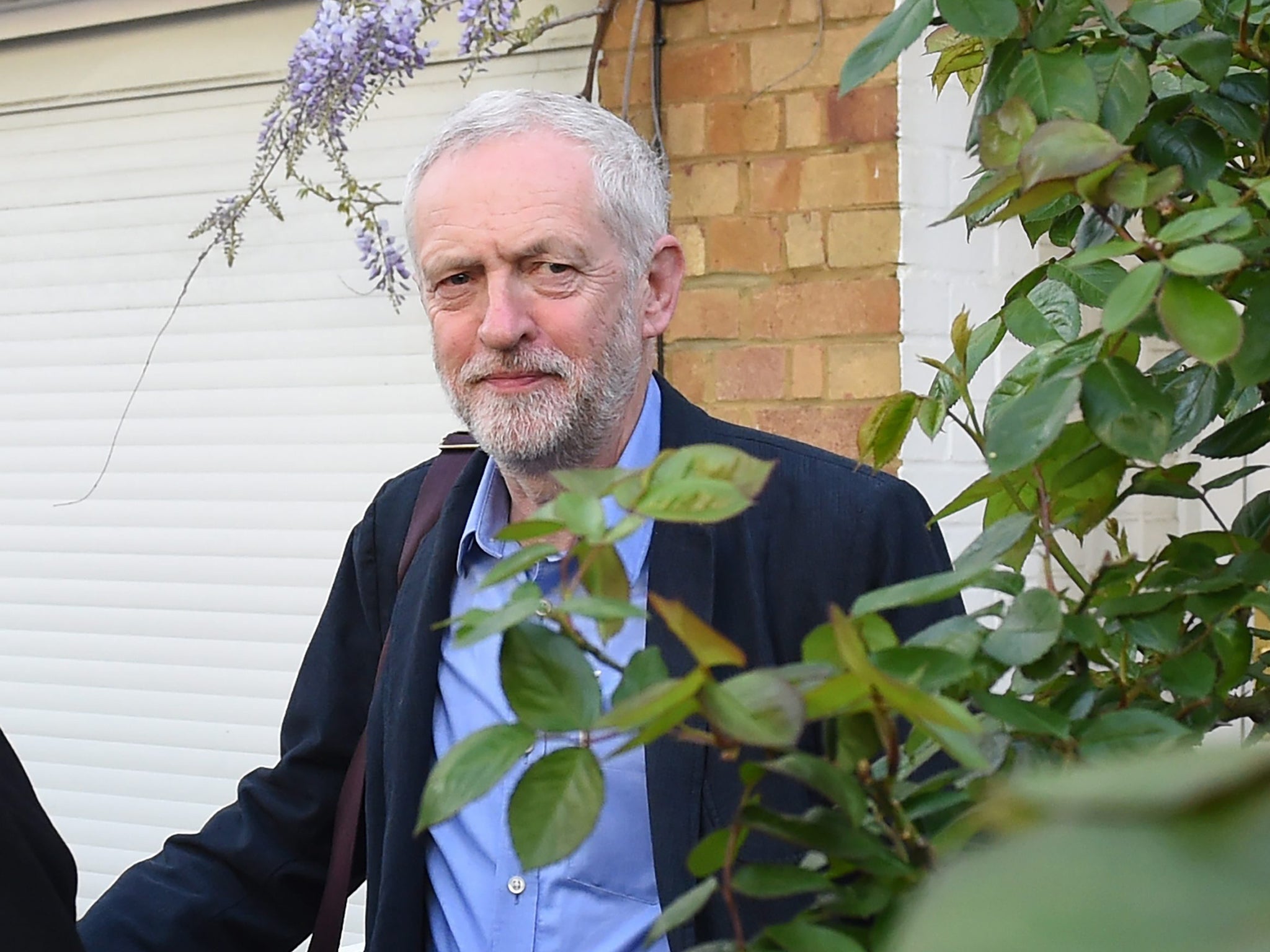Labour’s humiliation in Scotland is even worse than you think
Labour will almost certainly need to win a majority of seats in Conservative-dominated England to regain power in 2020

Labour's humiliating third place in the Scottish Parliament elections is even worse than it looks. It makes Labour’s “English problem” more acute. Now that its once-solid pillar of support in Scotland has crumbled, Labour will almost certainly need to win a majority of seats in Conservative-dominated England to regain power at the 2020 general election.
True, the Scottish National Party, after another four years in power, might not sweep the board north of the border in 2020. But the SNP is a formidable election machine, and so Labour can't bank on any meaningful recovery in Scotland by then. Thursday’s elections showed no positive “Corbyn effect” in Scotland, dashing his allies’ hopes when he became party leader on an anti-austerity ticket. A left-wing platform, including a 1p in the pound rise in income tax, did not work.
Labour has a different problem in Wales, another former stronghold. It went backwards in the assembly elections, with Ukip and Plaid Cymru making gains, but held on to power in Cardiff. Wales will be able to contribute less to a Labour general election victory than in the past because, under parliamentary boundary changes, the number of Welsh seats will be cut from 40 to about 30. Again, this raises the scale of Labour’s challenge in England.
The council election results in England were not as bad they might have been for Jeremy Corbyn -- or as bad as his Labour critics privately hoped. But they are cause for relief rather than celebration. His party is merely treading water, when the Opposition should be making gains against a governing party which brought in a disastrous Budget and advertises its bitter EU split daily.
Corbyn now looks set to avoid the immediate leadership contest that catastrophic results might have sparked after the 23 June EU referendum. A challenge next year is more likely. The council results will strengthen the hand of those critics who do not want move against him this year; they believe grassroots members will gradually lose patience because of his lack of competence and be prepared to install another leader before 2020. "We should let events take their course,” one frontbencher said today (Fri).
At last year’s general election, the Tories won 41 per cent of the vote in England (and 318 MPs) to Labour’s 32 per cent (206 MPs). To win a majority in 2020, Labour would need to be about 12 percentage points ahead of the Tories in England and secure a uniform swing of about 10 per cent in–slightly more than Tony Blair won in his landslide 1997 victory. Labour would need to gain about 60 English seats, including some it has never won such as Portsmouth South, Canterbury and Basingstoke.
The other bad news for Labour is that Ukip showed on Thursday that, even if the public votes to remain in the EU in June, Nigel Farage’s party is not going to curl up and die. Ukip won seats in Wales and remains on course to threaten Labour in its northern heartlands. It came second to Labour in 44 seats last year. Even if it does not win them in 2020, Ukip could scoop up enough working class votes to deny Labour victory in some.
There is no sign from Thursday’s results that Labour will do any better in 2020 than last year, when Tory warnings about a minority Labour government in the pockets of the SNP played brilliantly for David Cameron in England. Under Corbyn or another left-wing leader, Labour would probably seek to build a progressive, anti-austerity alliance by appealing to Liberal Democrats and Green voters. But Ed Miliband tried such a “35 per cent strategy” from 2010-15 and failed. He banked on scooping up disenchanted 2010 Lib Dem voters but some voted Tory last year.
If Labour went for the same approach in 2020, it would allow the Tories to re-run last year’s scare stories about a Lab-SNP coalition or a chaotic “rainbow coalition”, contrasting that with the stability of continuing Tory rule.
Does Labour “get” England? Some of its MPs think not. Surveys suggest that Labour members are more likely than the public to think of themselves as British rather than English. John Denham, the former Labour Cabinet minister who is now director of the Centre for English Politics and Identity at Winchester University, believes Labour needs to develop a “progressive patriotism.” He said: “The problem is that Labour can’t win in England without extending its political appeal to voters to feel their identity strongly.”
In pictures: Local elections 2016
Show all 10But Corbynistas recoil at the thought of chasing Ukip votes by toughening Labour’s line on immigration and say Corbyn is not “going to do a Blair in Middle England.”
Patrick Diamond, a former Downing Street policy adviser to Tony Blair and Gordon Brown, said today (fri): “Labour is in the grip of the same English problem which demolished Ed Miliband's hopes of victory in 2015. Not only is the party still not trusted on the economy; too many voters no longer see Labour as 'their' party. Mr Corbyn's policies and appeal are redolent of Britain in the 1970s, not Britain in the early 21st century. As long as Labour is seen as a party of the past rather than the future, it will struggle to make any sustained breakthrough in the towns and suburbs of England.”
Labour’s electoral mountain in England has just got even bigger. Sooner or later, the party will need to address its “English problem” if it is serious about regaining power.
Subscribe to Independent Premium to bookmark this article
Want to bookmark your favourite articles and stories to read or reference later? Start your Independent Premium subscription today.

Join our commenting forum
Join thought-provoking conversations, follow other Independent readers and see their replies